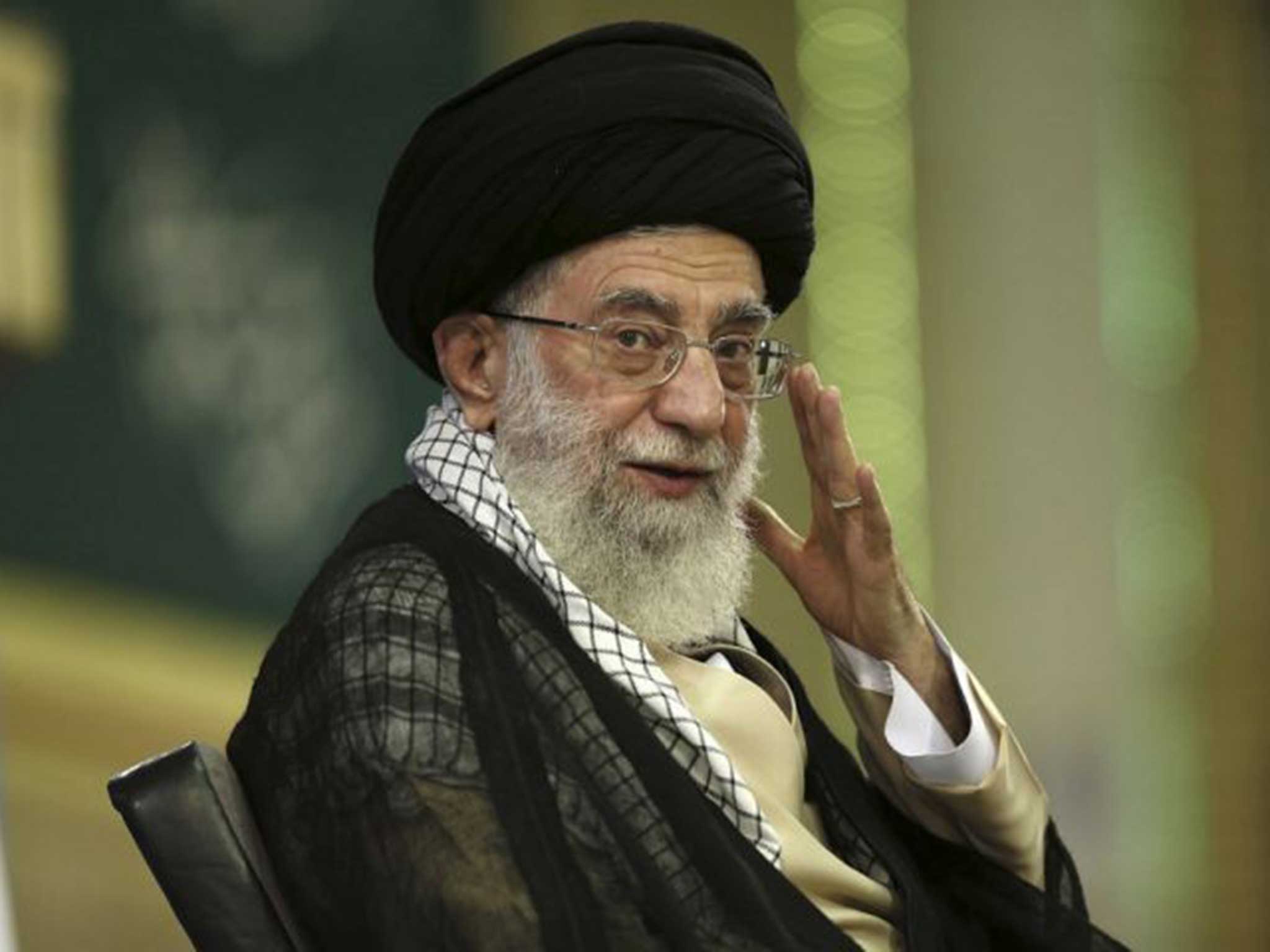Obama 'wrote to Iran’s supreme leader Ayatollah Ali Khamenei' over anti-Isis co-operation
Move seen as an effort by the administration to push Iran towards a deal on its nuclear programme

Barack Obama secretly wrote to Iran’s Supreme Leader last month regarding Iran and the United States’ shared interest in fighting Isis militants, according to reports.
The US president told Ayatollah Ali Khamenei that cooperation between the two countries was dependent on Iran moving closer to a deal on its nuclear programme, the US newspaper the Wall Street Journal said.
The newspaper cited unnamed individuals “briefed on the correspondence” as its source for the story.
The letter represents the Obama administration’s apparent desire to engage with Tehran in international affairs, despite a history of tense relations between the two countries.
It is also being seen by commentators in Washington DC as an effort to push the Islamic Republic closer to deal on its nuclear programme.
Ayatollah Khamenei is the most powerful person in Iran, and as Supreme Leader acts as the country’s head of state. He is the second person to hold the office since the Islamic revolution of 1979, which is selected by a council of senior clerics.
The directly elected president, currently the moderate Hassan Rouhani, takes the role of head of government and deals with most day-to-day affairs.
Earlier this week Mr Obama expressed cautious optimism that the international stand-off over Iran's nuclear programme would be resolved.
The President was speaking at a news conference the day after elections in which his party lost control of the country’s legislature to the opposition Republicans, who are often seen as hawks in international affairs.
Some of the antipathy between Iran and Isis (also known as Islamic State) originates from the fact that Iran as a country is majority Shia Muslim, while Isis is predominantly a Sunni militant group.
While relations between the two groups are not necessarily hostile, since the western invasion of and withdrawal from Iraq, the country has been wracked by civil war that has often divided along broadly sectarian lines.
Subscribe to Independent Premium to bookmark this article
Want to bookmark your favourite articles and stories to read or reference later? Start your Independent Premium subscription today.

Join our commenting forum
Join thought-provoking conversations, follow other Independent readers and see their replies